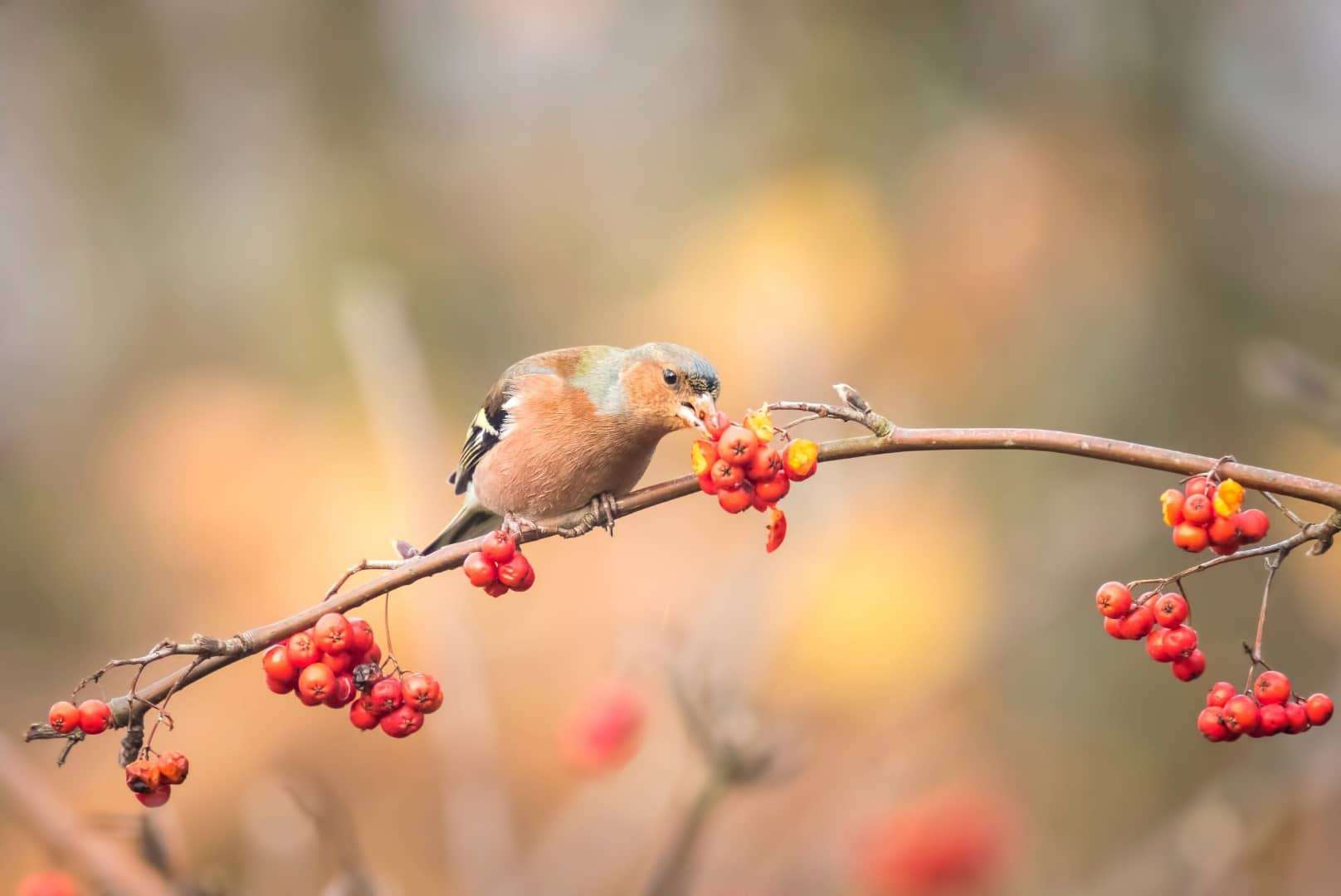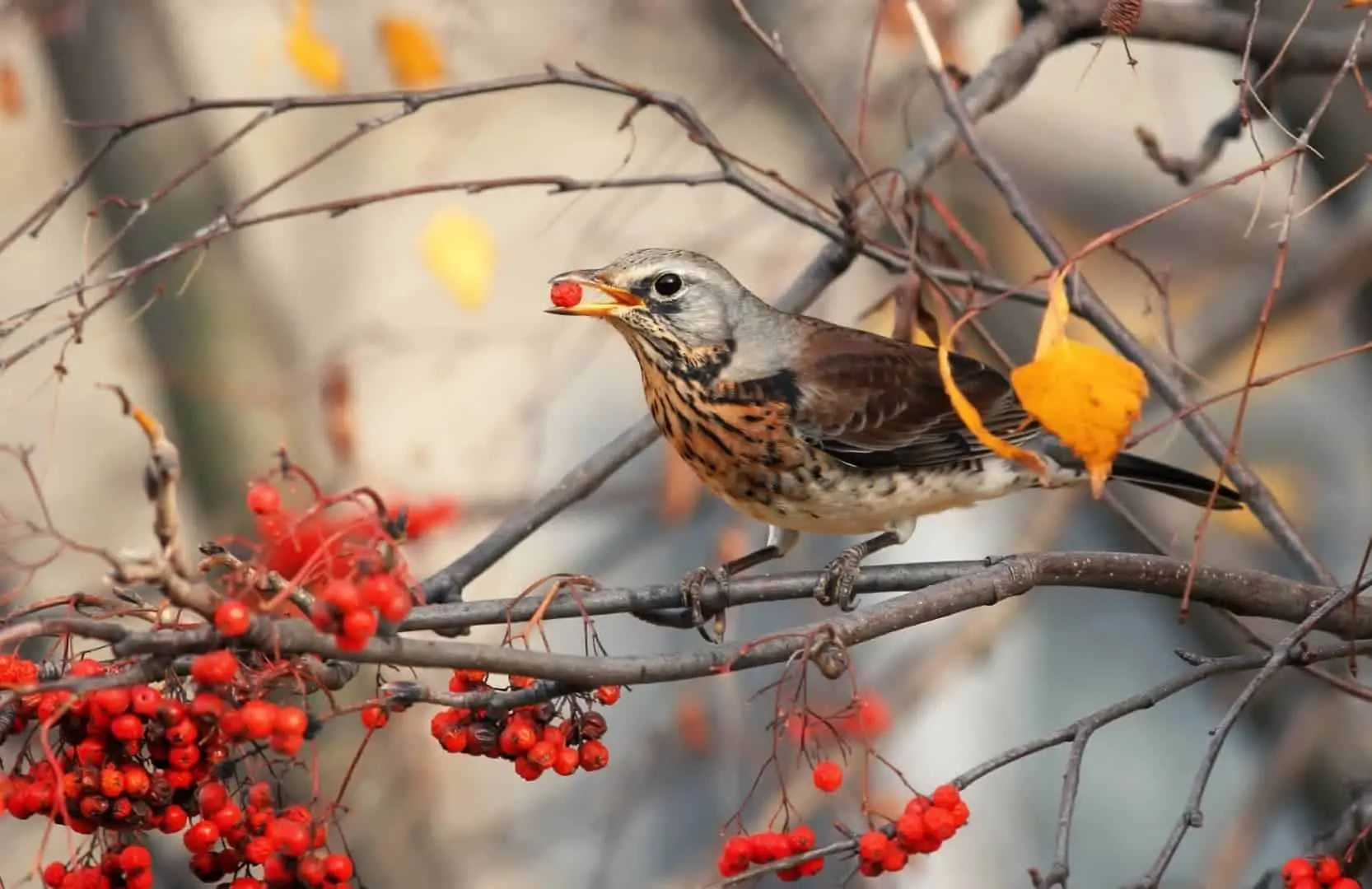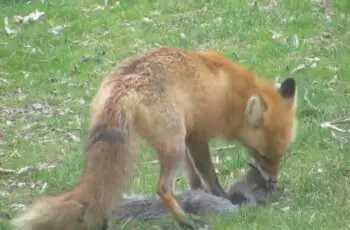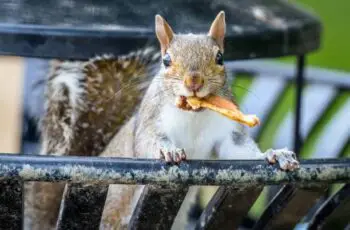Cranberries and Christmas have a special connection. They make beautiful and natural decorations, and when gathered nicely, they can be delicious food. But is it bird’s food as well? or better ask, do birds eat cranberries? Which birds eat and which berries do they eat? Here’s the answer.
The Short Answer…
3 out of 10 birds eat cranberries which means only a few bird species eat cranberries and most don’t due to its vinegary taste. Some people however have success feeding cranberries to their birds by pouring into their water bath that stays afloat and birds would curiously eat. But that isn’t the only way people feed cranberries to their birds. Some people freeze cranberries in a bag. Other people feeds dried cranberries to their birds which most birds eat preferably unlike fresh cranberries.
Birds are small adorable omnivores that need calories which give them the energy to fly and protein which aids feather and egg production. But not all food are equal. Some are nutritious while other ones contain protein and calories. However, birds need all of them. In the wild, birds maintain their nutrition from different foods like sustaining nutrition from plants or proteins from meat.
And just as in the wild, with the seasons changing, the food should also change for keeping and maintaining a healthy diet. Nonetheless, with lots of food available but without nutritional knowledge, it can be challenging to know which food to feed to which species as birds need a nutritional diet. And one of the sources of nutrition is fruits specifically cranberries. But just like pigeons eating rice myth, do birds eat cranberries? And which berries do birds eat? Here’s the detail.
Do Birds Eat Cranberries?
Not likely but if you feed it in an unusual way. Some birds eat cranberries but not all of them. Cranberries have a sour vinegary taste that birds do not like just like babies. Birds typically eat seeds, fruits, and plants which either tastes sweet or almost sweet. These little creatures are not accustomed to sour or spicy food and thus do not like those tastes without realizing the nutrition.
Like other fruits, cranberries have lots of nutrition and benefits specifically fresh cranberries. The benefits are even more than that for humans if you use them. In fact, you should use them once in a while. You can also find cranberry juice. Of course, it has some side effects but its certainly when you over use it.
Dried cranberries have few natural chemicals including sulfur dioxide which in excess can be very harmful to the bird’s health. Problems include feather destruction, hectic nature, antagonism as well as increase sensitivity to different allergies. You can minimize the risk by making homemade dried cranberries yourself.

Why Feed Cranberries To Birds?
Maintaining a healthy diet, you need to feed cranberries to your birds that contain lots of nutrition.
- Nutritional benefits
Birds may eat fruits likely but not all fruits. But that doesn’t mean the food is nutritious.
Cranberries are an excellent source of antioxidants. Therefore they play a vital aspect in sustaining the immune response of the birds. In addition to boosting immunity, it contains essential nutrients; Vitamin C, Vitamin E, Vitamin K1. Fresh cranberries are a blend of; 90% water and 10% other essential nutrients, fiber, and carbs.
- Vitamins and Minerals
Cranberries are a rich source of vitamins and minerals in birds, animals, and humans. Vitamin C and antioxidants provide the maintenance of skin, bones, and muscles. Vitamin K1 is essential for blood clotting.
- Heart Health
Cranberries contain anthocyanins, proanthocyanidins, and quercetin that are essentially antioxidants that reduce heart risks and cancer.
Animal doctors recommend always feeding birds dried cranberries to prevent bacteria and mold. The season of fresh cranberries remains from mid-October to the end of December. In the off months, feed your birds sulfite-free dry cranberries, as they are sweeter. But before purchasing, read the label, the product must be sulfite-free, as the sulfur dioxide has poor results on the birds’ health. Some people also freeze cranberries in a bag in the freezer.
Dried cranberries are additionally vital in fixing bird seed blends, as well. Patt, DVM, of Alta Mesa Animal Hospital in Arizona, suggests giving your birds fresh cranberries more than dried, saying “[dried fruits] lose a ton of nutrients away.”
But before purchasing the dried fruit for your bird, make sure to check the expiry date to ensure that you cater for fresh-dried cranberries to your captivators.
Note: According to qualified DVM doctors, you should never feed cranberries juice to your birds as the juice may create an imbalance due to its concentration. Moreover, the sweeter and excess sugar does negative reactions to their health and stomach.
How to Feed Cranberries To Birds?
Feeding cranberries is a challenge for everyone who wants to feed birds because they do not eat them due to its sour taste, unlike chocolate which every animal loves to eat as it’s sweet. However, there are some ways around which you can use to feed cranberries to your birds, at least some.
- Cut down cranberries into pieces according to the size of the bird.
- Drop cranberries into the birdbath or bowl where the bird drinks water. In water, bird will be more focused on it and will probably eat it.
Which Birds Eat Cranberries?
Most birds are hesitant about the tart taste of cranberries but not all of them. Cardinals, chickadees, Finches, Nuthatches, Grosbeaks, Jays, Titmice, wrens, woodpeckers, and warblers. These species wouldn’t fret over the bitter taste of these berries. Cranberries are a decent food source and raw food hotspot for these creatures.

Eating Berry
Which Berries Do Birds Eat?
Birds love eating different colorful fruits and berries as they look attractive, and they are a source of sugar for them. Particularly birds eat blackberry, Dogwood, Elderberry, Holly, Red Mulberry, American Pokeweed, Serviceberry, Viburnum.
Other than that, birds also willingly eat oranges, Mulberries, Crabapples, Concord grapes, Serviceberries, Blueberries, Raspberries, Raisins, and big-seed pumpkins are the most popular fruits among birds.
Though beneficial, an excess of overfeeding is probably harmful. Because it’s quite sweet and a lot of sugar is not healthy for them.
The peel of the non-organic fruits is more exposed to pesticides that are so harmful to their life. Pesticides are more likely to decrease bird’s fertility, increase weight loss, difficulty in hatching eggs, and so forth. Therefore, non-organic fruits are harmful to birds unless you make them are swallowing without the skin.
Other Foods To Feed Your Birds
Offer fruits to your birds in different ways and attract them to help them sustain over years.
- Plant some cranberry trees or other fruits in your garden for the birds. Try to plant the native fruits which are easy to recognize for the local birds.
- In the place where you have planted the tree, make sure to use minimal or no chemical, pesticide, or herbicide to prevent them from any toxic or poisonous effects. To avoid any accidental contamination or health problems, try to plant only organic fruits.
- Sprinkle tiny and large pieces of edibles on the ground or place them on a large tray to attract the hungry species.
- Freeze organic product entirely or cut into lumps in the mid-year and tumble to add to feeders in the colder time of year for birds to appreciate when characteristic organic product sources are scant.
- If birds are still not attracted to the fruit, change the fruit variety. Apples and oranges are the most famous and most generally acknowledged organic products to take care of birds. It isn’t necessary to strip or remove the center of the natural product ere feeding them.
Wrap Up
Not delicious but beneficial, just like medicine. Cranberries prevent gum disease, tooth decay, even oral cancer. This small little fruit is much more beneficial than it just looks like. In addition to feeding birds, anytime you’d like to eat sour food, cranberries are the perfect choice to go for.


